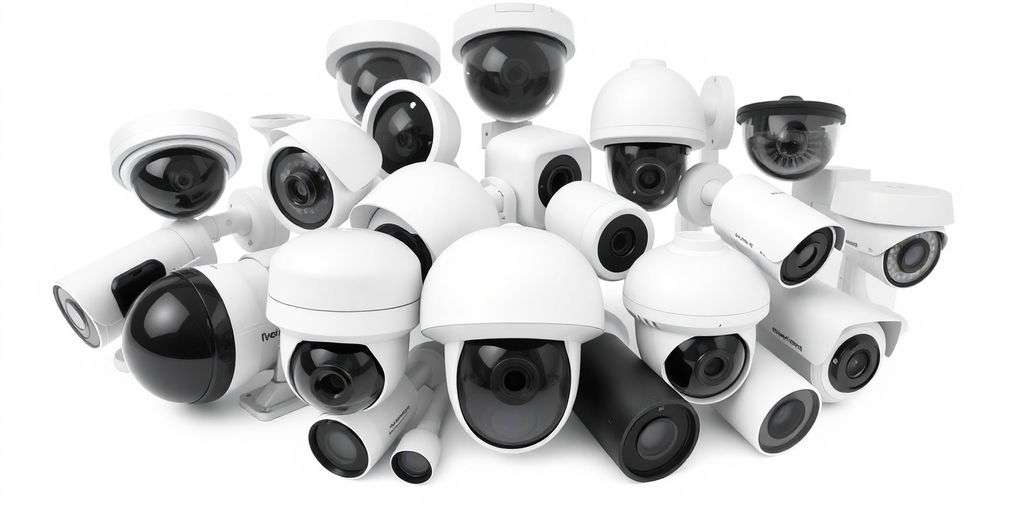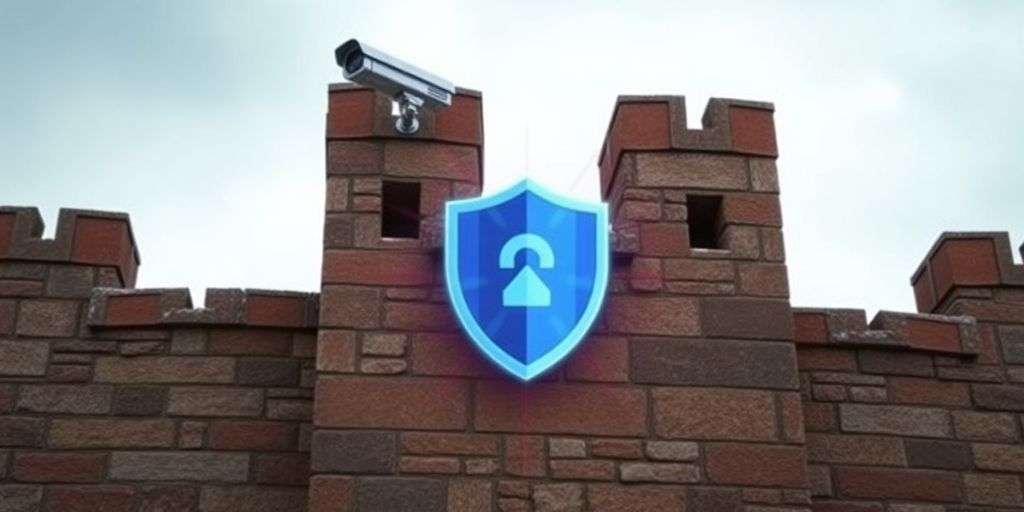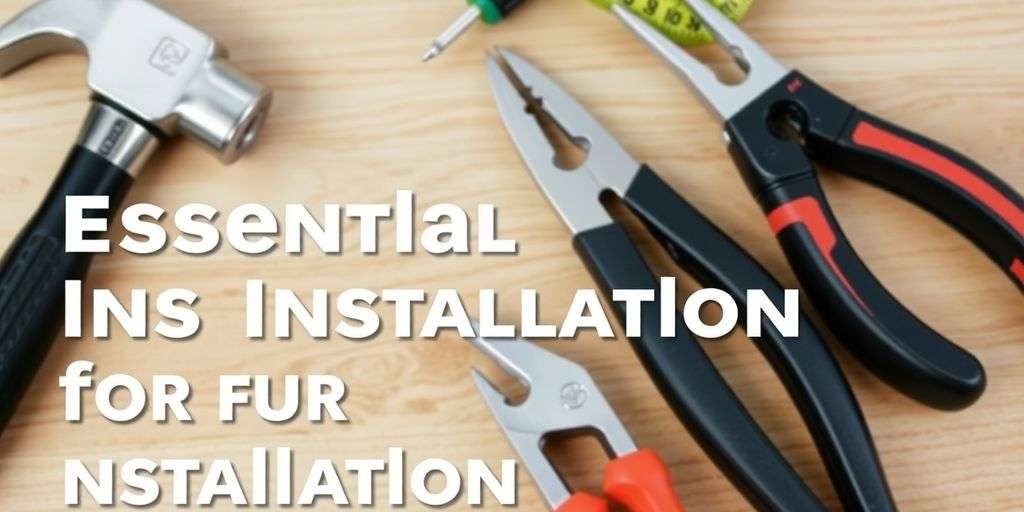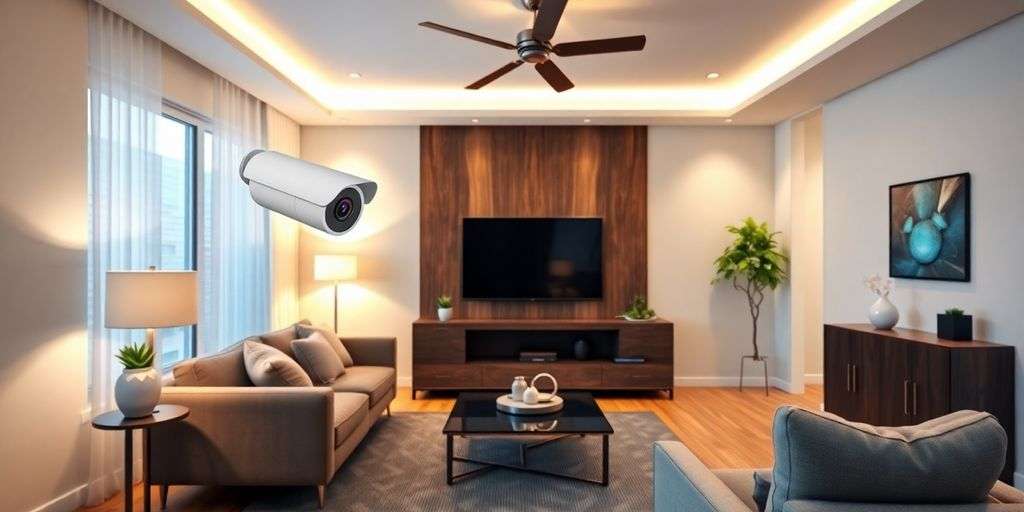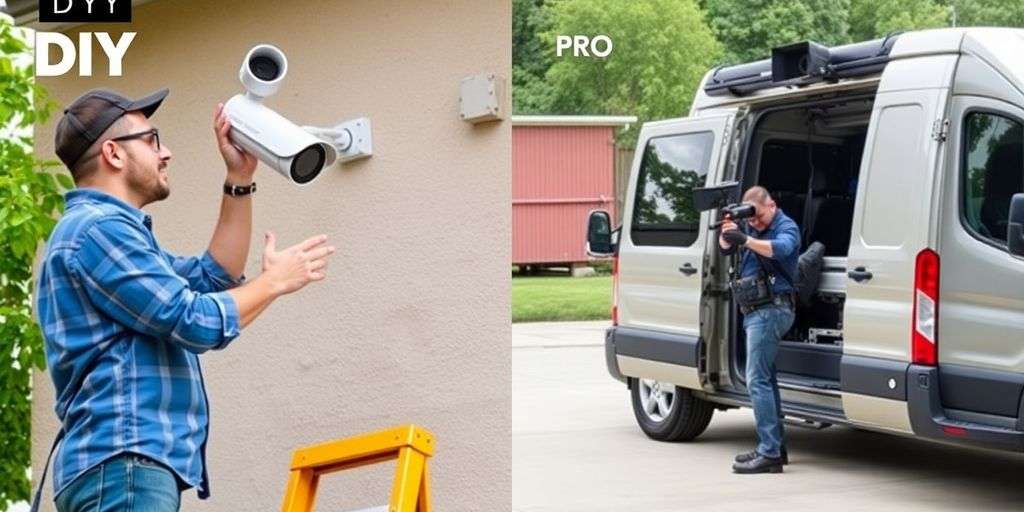Exploring Different CCTV Camera Types

Dome Cameras: Sleek and Versatile
Dome cameras are a popular choice for many security setups due to their discreet design and versatility. They can be used in various environments, from homes to businesses. Their dome shape makes it difficult for intruders to tell which direction the camera is pointing, enhancing security.
Bullet Cameras: Long-Range Guardians
Bullet cameras are known for their long-range capabilities. They are ideal for outdoor use, providing clear images over significant distances. Here are some key features:
- Weatherproof: Designed to withstand harsh conditions.
- High Resolution: Offers clear images even at night.
- Easy Installation: Can be mounted on walls or ceilings.
PTZ Cameras: Pan, Tilt, and Zoom
PTZ cameras offer flexibility with their ability to pan, tilt, and zoom. This allows for comprehensive coverage of large areas. They are particularly useful in monitoring events or busy locations.
Thermal Cameras: Seeing in the Dark
Thermal cameras detect heat signatures, making them effective in low-light conditions. They are often used in security for:
- Intruder Detection: Identifying movement in total darkness.
- Fire Detection: Spotting heat sources that may indicate a fire.
- Perimeter Security: Monitoring large areas without visible light.
In summary, choosing the right type of CCTV camera is crucial for effective surveillance. Each type has its unique strengths, making it essential to assess your specific needs before making a decision.
Remember, the right camera can significantly enhance your security system.
Choosing the Right CCTV Camera for Your Needs
Selecting the appropriate CCTV camera is crucial for ensuring effective surveillance. Understanding your specific requirements will help you make an informed decision. Here are some key considerations:
Residential Security: Keeping Your Home Safe
- Dome Cameras: Ideal for indoor use, these cameras blend well with home decor.
- Bullet Cameras: Perfect for outdoor settings, offering long-range visibility.
- PTZ Cameras: Allow you to control the camera remotely, providing flexibility in monitoring.
Commercial Surveillance: Protecting Your Business
- High-Definition Cameras: Essential for capturing clear images in busy environments.
- Network Cameras: Enable remote access and monitoring via the internet.
- Thermal Cameras: Useful for detecting movement in low-light conditions.
Industrial Applications: Monitoring Large Areas
- Wide-Angle Cameras: Cover expansive areas, reducing the number of cameras needed.
- Rugged Cameras: Designed to withstand harsh environments, ensuring durability.
- Integrated Systems: Combine various camera types for comprehensive coverage.
Specialised Uses: Tailored Solutions
- Covert Cameras: Discreetly monitor sensitive areas without drawing attention.
- Licence Plate Recognition Cameras: Ideal for monitoring vehicle access points.
- Smart Cameras: Equipped with AI for advanced analytics and alerts.
Choosing the right CCTV system is not just about the cameras; it’s about creating a comprehensive security solution that meets your unique needs.
In summary, whether you are securing your home, business, or industrial site, understanding the different types of CCTV cameras available will help you make the best choice. Remember, professional installation can significantly enhance the effectiveness of your CCTV system, ensuring optimal coverage and performance. For tailored solutions, consider consulting experts who can assess your specific requirements and provide the best options for your situation.
Installation and Maintenance of CCTV Cameras
Professional Installation: Ensuring Optimal Performance
Installing a CCTV system is a vital step in securing your property. A professional installation guarantees that your cameras are set up correctly and function at their best. Here are some key benefits of hiring experts for installation:
- Tailored Solutions: Professionals assess your needs and recommend the right cameras and equipment.
- Optimal Camera Placement: Experts ensure cameras cover all areas without blind spots.
- Adherence to Budget: Quality installation services are available for various budgets.
DIY Installation: Tips and Tricks
For those who prefer a hands-on approach, DIY installation can be rewarding. Here are some tips:
- Choose the Right Location: Ensure cameras are placed where they can capture the most activity.
- Secure Wiring: Keep wires hidden and protected to prevent tampering.
- Test the System: After installation, check all cameras to ensure they are functioning properly.
Regular Maintenance: Keeping Your System Running Smoothly
To ensure your CCTV system remains effective, regular maintenance is essential. Consider these practises:
- Routine Checks: Regularly inspect cameras for dirt or obstructions.
- Software Updates: Keep your system’s software up to date for optimal performance.
- Battery Replacement: If your cameras are battery-operated, replace batteries as needed.
Upgrading Your System: Staying Ahead with Technology
As technology advances, upgrading your CCTV system can enhance security. Here are some reasons to consider an upgrade:
- Improved Image Quality: Newer models offer higher resolution and better night vision.
- Advanced Features: Look for systems with motion detection and remote access capabilities.
- Integration with Smart Home Systems: Modern cameras can often connect with other smart devices for enhanced security.
Regular maintenance and timely upgrades are crucial for keeping your CCTV system effective and reliable.
Conclusion
Now that you have explored the various types of CCTV cameras available, you are better equipped to enhance your security setup. Understanding the different camera options and how to effectively use them can significantly improve your safety. Remember, it’s not just about having cameras; it’s about using them wisely. Here are a few tips to make the most of your CCTV system:
- Be strategic: Regularly check your camera feeds to spot any unusual activity and adjust your plans accordingly.
- Combine information: Use CCTV footage along with sounds from the game and communication with teammates to get a clearer picture of your surroundings.
- Stay flexible: Be ready to change your approach based on what you see in real-time.
By applying these strategies, you can turn your CCTV cameras into powerful tools for gathering information, helping you navigate the challenges of Rust more effectively.
Frequently Asked Questions
Can I move CCTV cameras once they are installed?
Yes, you can relocate CCTV cameras if you have the right tools, like a hammer, and access to the tool cupboard.
Are CCTV cameras easy to destroy?
Yes, CCTV cameras have 150 HP, making them vulnerable to any tool or weapon.
Does the computer station for CCTV need power?
No, the computer station operates without requiring any power.

